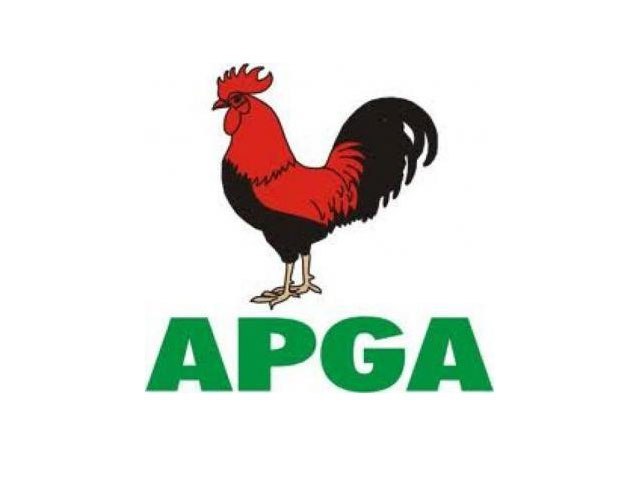APGA sues INEC over interference in leadership affairs
The National Working Committee (NWC) of the APGA has sued INEC over alleged partisanship and unlawful interference in the leadership affairs of the party. The National Chairman of APGA, Barrister Sylvester Ezeokenwa, said at a media conference in Abuja that the party had approached an FCT high court on the grounds that INEC failed to […]

The National Working Committee (NWC) of the APGA has sued INEC over alleged partisanship and unlawful interference in the leadership affairs of the party.
The National Chairman of APGA, Barrister Sylvester Ezeokenwa, said at a media conference in Abuja that the party had approached an FCT high court on the grounds that INEC failed to provide it with available evidence justifying that Chief Edozie Njoku was once a national officer by the order of any Nigerian court.
The statement reads in part: “We are at a loss regarding the recent false representation by INEC that Chief Edozie Njoku and his group are national executives of APGA ‘by order of court’. We challenge the commission to produce any court order wherein the court has made any positive pronouncement recognising Chief Edozie Njoku and his group as national officers of APGA.
“We firmly assert that no such court order exists. The current representation by INEC concerning Chief Edozie Njoku and his group is false, illegal, baseless, and without any justification.”
Reacting, Rotimi Lawrence Oyekanmi, the Chief Press Secretary to the INEC Chairman, Prof. Mahmood Yakubu, said that INEC could not be accused of partisanship in obeying laws, itself being a creation of the law.
He said, “There are provisions for appeal that may be explored. INEC cannot be accused of partisanship in carrying out its legitimate duty and must obey court orders until it is vacated by a superior court.”
Some officials of the commission, who also spoke with our reporter on condition of anonymity, said they were not duty-bound to display court orders, especially since they received scores of judgements, and that after due verification and obtaining certified true copies of such judgements, the commission was duty-bound to obey and implement them.
